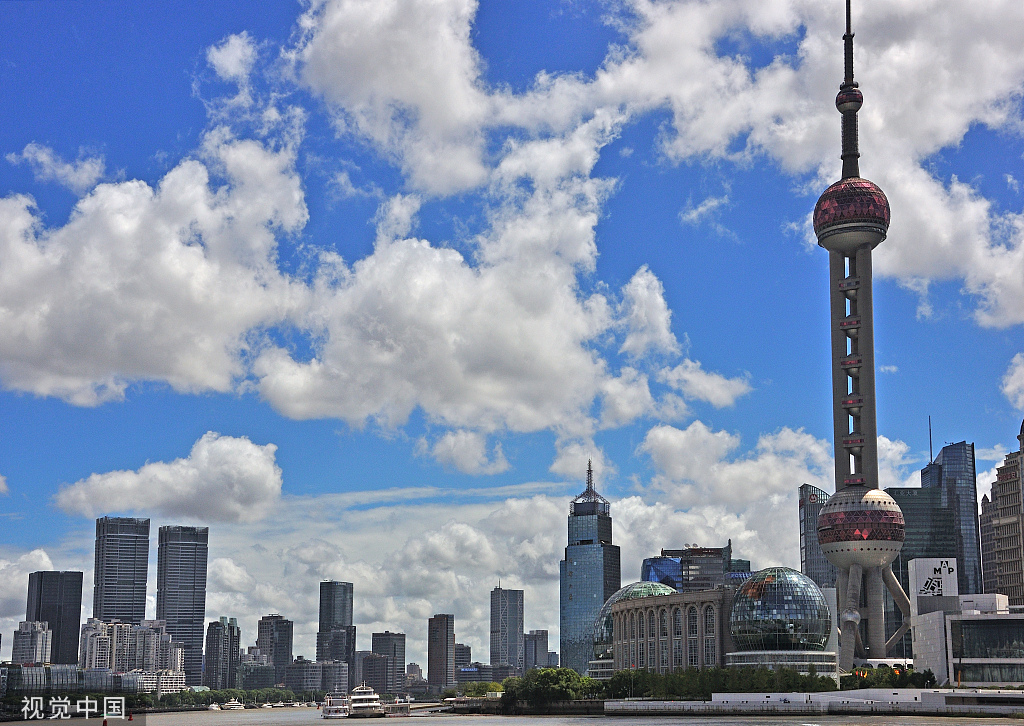'Economic security' threat to Asia-Pacific
By Tang Xinhua | China Daily | Updated: 2023-05-29 09:51

The G7 summit, which concluded on May 21 in Hiroshima, Japan, released a statement in which the seven major economic powers said they would unite to safeguard "economic security" by pushing for "a level playing field for their workers and companies" in dealing with China.
The meeting marks an attempt by the United States to build its China-targeted strategic containment policies through relying on its alliances in the Asia-Pacific region, under the banner of safeguarding "economic security", involving key supply chains, key infrastructure, emerging technology governance, international technical standards and the clean-energy economy.
The goal is to build a new Indo-Pacific security architecture that completely relies on the United States in terms of politics, military, economy, technology and resources, which will severely affect the security and development of the Asia-Pacific region.
"Economic security" is a new excuse by the United States to disrupt China's long-term economic and trade cooperation with other countries.
To further promote its Indo-Pacific Strategy and Indo-Pacific Economic Framework, the United States has, as usual, concocted concepts such as "nonmarket policies "and "economic coercion" to stigmatize the good, long-standing economic and trade cooperation between China and Asian countries. Through such stigmatization, the US also aims to destroy regional multilateral trade cooperative frameworks, such as the Regional Comprehensive Economic Partnership. To this end, the G7 will launch tools such as the so-called "economic coercion coordination platform" to enhance information sharing and coordination within its alliance.
Building a new supply chain alliance is the basis for the United States to promote "economic security". The Hiroshima summit proposed to build a reliable partnership within and outside the G7 group to strengthen the resilient supply chain network and formulate supply chain principles, such as transparency, diversification, security, sustainability, credibility and reliability, establish the Mineral Safety Partnership, and extend it to non-G7 countries, especially developing countries, to further shape a new supply chain network system and new rules of global trade.
The adjustment of the supply chain system directly affects the pattern of the global value chain — one of the strategic goals of G7-proposed measures to promote "economic security" is actually to squeeze China's position and space in the global value chain.
The United States has taken "economic security" as a new starting point to build alliance partnerships in key strategic areas. Under its Indo-Pacific Strategy, Washington has established regional partnerships, alliances, organizations and rules, and enhanced the collective strength within and beyond the region, so that it can achieve the second major strategic goal of the Indo-Pacific Strategy — connection, or joining hands with its allies to achieve its strategic goals.
The G7 summit, for example, proposed launching the Global Partnership for Infrastructure and Investment to strengthen the security and resilience of critical infrastructure.
Under the concept of "economic security", the United States has wooed some countries in joining its technology alliances. It has further strengthened the CHIP4, and the military technology security cooperation among Australia, the United Kingdom, and the US under their trilateral security partnership (AUKUS).
Washington has also joined hands with its allies in the Indo-Pacific region to promote a "clean economy", referring to clean energy, decarbonization and infrastructure. The United States is strengthening the technical interoperability within the alliance in the Indo-Pacific region and building a new Indo-Pacific security architecture.
The United States has used "economic security" as its new "cloak" to try to dominate the global new technology ecosystem and technology governance system.
The Indo-Pacific region is becoming the core area of the US' strategic competition with China, and tech power-based competition is becoming the pillar of international power tussles. The United States has, under its Indo-Pacific Strategy, vigorously promoted the Indo-Pacific digital strategy, built a common values-based consensus centered on the idea of "democracy", implanted common values of "freedom and openness" in the Indo-Pacific digital space, and established multidimensional and multifunctional technical alliances and partnerships, in an attempt to build a technical rules system featuring a "layered pyramid" of de-Sinicization.
To advance the G7 digital trade agreement, the United States has made efforts to build a digital ecosystem and supply chain. In June 2021, the Carbis Bay G7 Summit communique issued by the G7 summit proposed to establish a trustworthy and values-driven digital ecosystem.
To develop digital technology investment standards to replace China-proposed technology infrastructure, the United States has managed to persuade participants in the Prague conference in 2019 and 2020 to agree on the standards of 5G network security, making those participating countries agree to invest in "reliable and secure" technology and digital infrastructure.
The United States will also take the lead in setting up evaluation frameworks and standards in the Indo-Pacific region to vet digital development projects and promote the implementation of an investment screening plan in relevant countries.
To promote a values-driven digital governance model, the United States also uses financial institutions to implement digital development plans and digital governance models in the Indo-Pacific region.
It is clear that the United States promotes the concept of "economic security" in the Indo-Pacific region mainly with a strategic goal to weaken economic cooperation between countries in the region and China, and gradually establish a new security system based on a "techno-political strategy", so that it can shape an asymmetrical power advantage, security environment, strategic environment and "rules-based "international order.
Given the global challenges and strategic competition risks, the international community must adhere to a common, comprehensive, cooperative and sustainable security philosophy, stick to the principles of the UN Charter and international laws, abandon the Cold-War mentality, oppose unilateralism, and refrain from clique politics and camp confrontation, if it is to step out of the woods.
The writer is a researcher at the Institute of International Relations in Tsinghua University.
The views don't necessarily reflect those of China Daily.
























